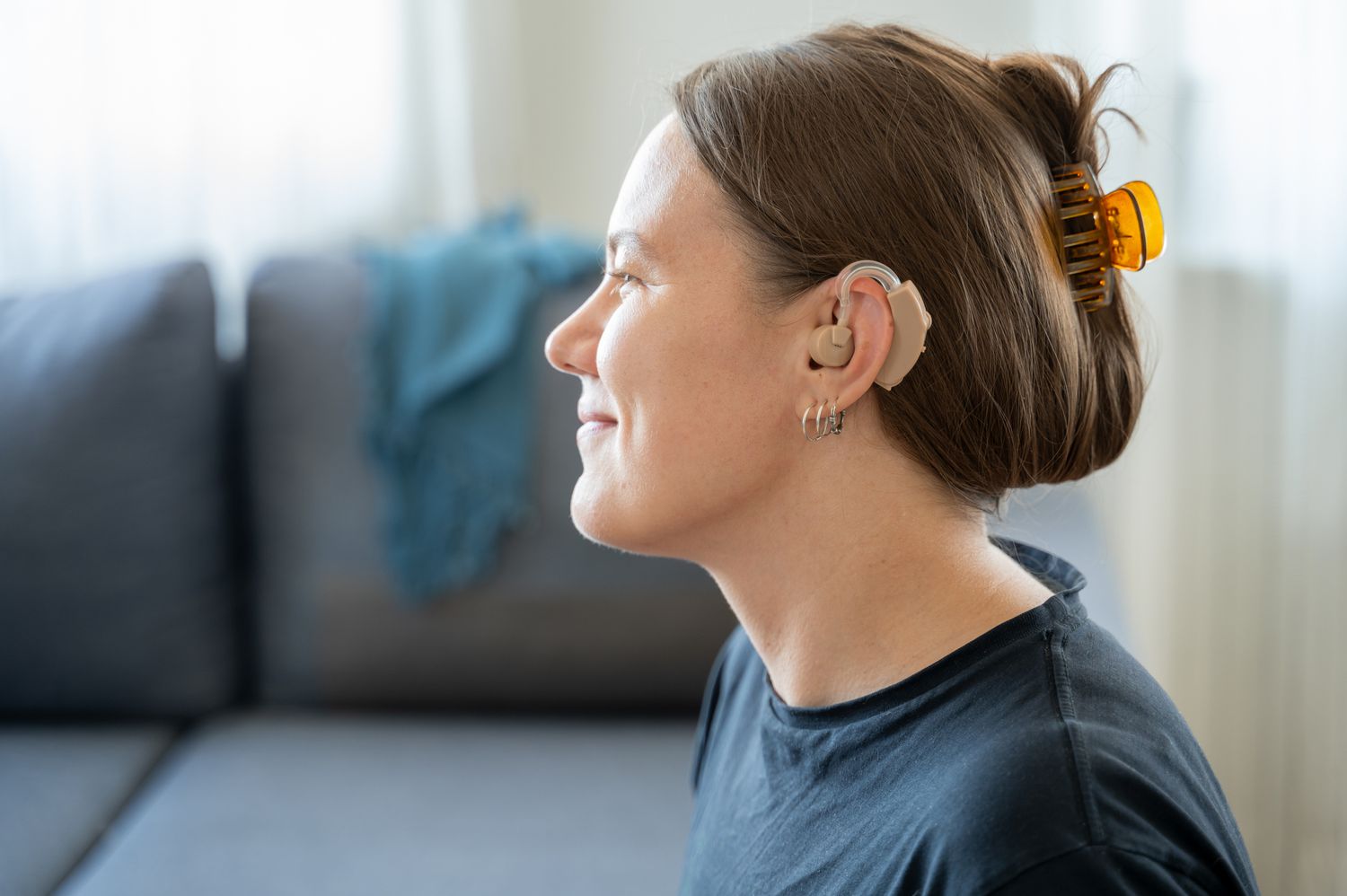New Study Reveals Wearing Hearing Aids Linked to Lower Early Death Risk

A recent study has uncovered that people who wear hearing aids regularly may have a decrease in their risk of dying. This research was published earlier in The Lancet Healthy Longevity, revealing that adults who consistently relied on their hearing aids lowered their risk of death by 24% in contrast to individuals who did not utilize them.
Janet Choi, MD, otolaryngologist at Keck Medicine of USC and chief researcher clarified that this outcome doesn't imply that the use of hearing aids directly contributes to increased lifespan. Choi emphasized that the study is observational in nature, thus while it did show a correlation between the regular use of hearing aids and decreased risk of mortality, it did not establish causality.
Nonetheless, the findings suggest that hearing aids might play a significant role in the protection of people's health, potentially delaying premature mortality. This article discusses potential ways hearing aids may improve longevity and includes information on finding the right type of hearing treatment.
The study used data from nearly 10,000 adults between 1999 and 2012, wherein 1,863 underwent hearing loss, 237 regularly utilized hearing aids (at least five hours a week), and 1,483 never wore any. These participants' mortality status was then tracked over a decade.
After adjusting for variables such as age, income, education, race, and severity of hearing loss, the researchers discovered a solid correlation between wearing hearing aids and reduced mortality risk.
These findings echo prior research revealing how untreated hearing loss can negatively affect an individual's life. For instance, a 2019 study established that untreated individuals had a shorter duration of living without physical limitations and daily life activities.
Furthermore, untreated hearing loss has been connected with depression, an increased risk of falls, and a greater possibility of underemployment or unemployment. According to the National Council on Aging, mild hearing loss doubles the risk of dementia, while moderate loss triples it.
In contrast, a 2023 study discovered that utilizing hearing aids can slow cognitive deterioration in the elderly. Other research highlights potential wellness benefits, citing users’ reporting of improved health-associated quality of life after wearing hearing aids.
While it remains unclear how addressing hearing loss can directly reduce the mortality risk, Choi posits that enhanced hearing can boost mental health, leading to healthier lives overall.
Additional probable benefits as suggested by Nicholas S. Reed, AuD, an audiologist and assistant professor from Johns Hopkins University Bloomberg School of Public Health, include improved communication capabilities and better mental stimulation, both of which could lead to increased physical activity and social engagement.
As per Reed, communication enhancements can also be beneficial in mediating conversations with health experts, which may result in reduced disease risk and hospitalization. As echoed by Kristan Alfonso, MD, a pediatric otolaryngologist at Children's Healthcare of Atlanta, hearing loss can contribute to social isolation and cognitive decline, impacting quality of life and longevity.
Choi underlines that this study serves as a starting point for future investigations which might uncover the underlying mechanics of these correlations. Subsequent studies will likely consider disparities, as wealthier and more health-conscious individuals may be more inclined to treat hearing loss.
Statistically, in 2019, around 1.57 billion people globally experienced hearing loss - one in five people, and over sixty percent of whom were aged over 50. Within the U.S., approximately 15.5% of adults or 40 million people have hearing problems, of which 16% who needed hearing aids made use of them.
Even though older adults usually use hearing aids more, there are still disparities within this age group, mostly due to the high cost of these devices.
In 2022, the Food and Drug Administration (FDA) approved over-the-counter hearing aids for adults with mild to moderate hearing loss.
Since Choi’s data came from before then, the new study doesn’t include insight into how these devices may impact the population’s health. She explained that she believes using OTC devices will also lower the risk of death so long as they’re used as indicated.
Choi explained that getting a hearing test done is the first step in addressing hearing loss.
Insurance will cover the test if you report that you have a hearing issue, she said.
Many people go to their primary care doctors and then head to an audiologist for a test. If hearing loss is detected, the audiologist will probably refer you to an ear, nose, and throat (ENT) doctor, or otolaryngologist.
“A common ‘symptom’ of hearing loss is thinking others are mumbling and this may be a sign to look out for,” said Reed.
Once you know if there’s a hearing issue, you can tell if you’ll benefit from an OTC hearing aid or a prescription hearing aid. Your state may require a medical exam or hearing test to get prescription hearing aids.
Reed suggested people try a mobile app like Mimi to check hearing if they’re not ready for a professional test.
“Knowledge is power in this case, as it may help judge if you’re having trouble with certain situations that you may not otherwise notice because hearing loss sets in insidiously slow,” he said.
Over the past decade, many new hearing technologies have come on the market that can be incredibly helpful in treating hearing loss, Choi added.
“You won’t clearly know those options unless you get your hearing tested,” she said. “There are a lot of things you can do about it.”




